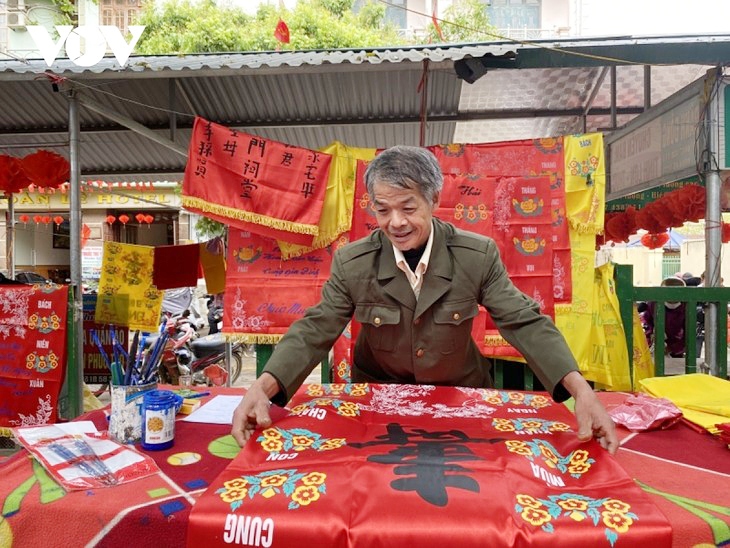The banners being sold near the gate of Co Sau market in Trung Khanh district are a reflection of the respect and filial piety shown by the local people towards their elders. These banners, which are 0.8 meters in height and 2.5 meters in width, are usually adorned in red or pink, symbolizing good luck.
“I have been selling banners for 25 years, and each one costs around US$4. The demand for these banners is highest between October and February, when many families celebrate longevity. It is common for grandchildren to hang these banners as a wish for their grandparents and parents to live up to 100 years old,” says Ly Thanh Long, a resident of Trung Khanh town.

The Tay and Nung people believe that reaching the age of 49 signifies the first phase of human life and thus, a longevity ceremony must be held. Ten days prior to the ceremony, the host invites relatives and neighbors to the event. Close relatives prepare banners with wishes for longevity and the names of children and grandchildren.
Today, the longevity ceremony may be delayed until the age of 61, and the scale of the ceremony depends on the financial condition of the family. Invited guests contribute rice, liquor, money, clothes, scarves, and hats. The messages written on the banners correspond to the honoree’s age. For example, “Blessing,” “Longevity,” “Health,” and “Security” correspond to the milestone ages of 49, 61, 73, and 85 respectively. When someone reaches 85, they receive all of those blessings.
“My father turns 61 this year, and I am following the tradition of purchasing and hanging banners as a wish for my grandparents and parents,” says Lo Thi Thieu of Trung Khanh district.
Banners are also hung during house-warming ceremonies as a symbol of good health, happiness, and prosperity.
“The banners usually carry messages of happiness and longevity. I sell many of them in the first months of the year when longevity ceremonies are usually held,” states Dam Dan of Trung Khanh district.









